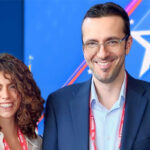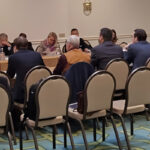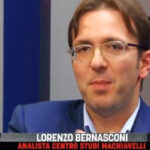Technology and getting out of the habit of complexity
Modern technology has undoubtedly had a positive impact, in many ways, on the quality of life of each of us, at least in the so-called Western world. However, its pervasiveness has begun, especially in the last twenty years, to significantly modify the very way in which we humans relate to reality.
Modern devices allow us to carry out extremely complex operations using simple gestures, thanks to increasingly intuitive interfaces. If this, on the one hand, has speeded up and - in fact - simplified a whole series of daily operations, on the other hand it is disaccustoming us to complexity, which is inevitably less familiar and increasingly difficult to manage.
This process concerns each one of us, to varying degrees depending on our age and the extent to which we make use of the most modern technologies, and naturally also affects politicians and politics itself, which in the new digital and hyperconnected world appears to be increasingly flattened by direct, instantaneous and simplified communication.
The Right and the invasion of Ukraine
It is here, in my opinion, that the deep root of the difficulties in which a good part of the Italian Right seems to be struggling when it comes to thematizing, in the light of the current war between Ukraine and Russia, its own present and past political position regarding the Russian Federation and its president.
A position that, on the other hand, is in my opinion much less problematic than it might appear at first sight: there is in fact no contradiction between the past appreciation for Putin's ability to manage an immense and complex country, on the one hand, and the condemnation without appeal, on the other, of the serious violations of human rights (violations that in Russia, I would like to remind you, certainly did not start yesterday). These are, of course, two different levels of reality.
Nor, on the other hand, do I think there is any reason to be scandalized if Italian politics has always had an eye on Russia as a fundamental partner on the economic level, but today has chosen practically in unison to stigmatize the disgraceful choice of militarily attacking Kiev; nor if, in the face of sanctions against Russia, there is any hesitation in stepping the throttle, in the awareness that the backlash on the Italian economy will be very hard.
Reading the world in multi dimensions
They are different levels: so much so that the conclusions drawn at each level must then be integrated within the framework of an overall vision of what is happening and the available margins of maneuver. What is undeniable is that very clear and absolute positions (in the etymological sense of ab-solutae, "free from bonds" with reality and its complexity) would risk dragging us towards a humanitarian, social, economic and perhaps even nuclear apocalypse.
I therefore find dangerous that sort of cognitive sclerosis, widespread today (not only on the right, let's be clear), which levels thought on a naive and simplistic version of the principle of non-contradiction, giving the impression that the ability to read the world in its depth and multidimensionality that characterizes it has been lost.
It is necessary, I believe, to go back to promoting a way of thinking that knows how to embrace different levels of reality: in other words, to recover the ability to intellectually manage a certain degree of complexity; but, since today politics is largely about communication, it is also necessary to be able to give the public a three-dimensional representation of reality itself (although in this, it must be said, the increasingly rapid pace of information and the very structure of social media do not help at all).
However, I see no other way out of the current impasse: in an increasingly interconnected global village, the inability to distinguish the different levels of reality (ontological, ethical, economic, social, ideal) leads to progressively erode what Blumenberg would call the legibility of the world and forces us to rely on a situationism that, in addition to easily bordering on opportunism, will inevitably lead, in the long run, to collapse under the weight of its own contradictions.
Understanding and studying before acting
This difficulty in reading reality is today very evident in the American Left which, unable to evaluate events and personalities in a correct historical perspective, has by now firmly espoused that cancel culture which would like to eradicate from public spaces and from the collective memory episodes and figures that deviate from the moral standards prevailing today, or rather, from standards advocated by those who have sufficient interests and strength to present them as such.
The echo of this uncritical revisionism has also reached Italy, where we risked a ridiculous damnatio memoriae of Dostoevsky (deceased 141 years ago) in response to the execrable invasion of Ukraine currently underway.
If the Right, fortunately, seems to have rejected this disgraceful key to the reinterpretation of history, there is still the risk that it will end up implementing a mirror operation, based on the same logic, that is, a reduction of history and culture to a pure fetish and postcard for tourists, to be preserved for a sort of reactionary instinct and not because its value and meaning are actually understood.
But, even more, I am concerned about the risk that such a logic, applied not to the past, but to the most pressing current events, leads to think that complex crises such as the one we are going through can be resolved with simple and one-dimensional actions, i.e. with tweets and catchphrases that are inevitably unable to grasp the nuances, implications and the dizzying complexity of the clash taking place, which is economic, cultural, social and informative as well as warlike.
Never as today it is necessary to understand and study before taking action, and get out of the fan's point of view to adopt Spinoza's motto: non ridere, non lugere neque detestari, sed intelligere. The very survival of our civilization depends on it.
Research Fellow at the Machiavelli Center for Political and Strategic Studies, formerly worked as a consultant at European Parliament, Presidency of the Council of Ministers, Chamber of Deputies and Ministry of Economic Development. M.A. in Philosophy at the Catholic University of Milan.









Scrivi un commento